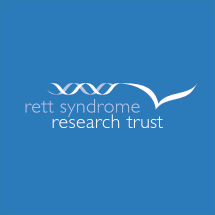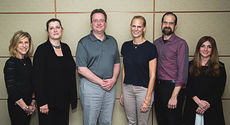
TFWA Care began supporting the Rett Syndrome Research Trust some years ago following a recommendation from a representative of one of its members. TFWA Care’s funding is supporting cutting-edge research into a new process to reverse the debilitating effects of Rett Syndrome.
Rett Syndrome is the most physically disabling of the autism spectrum disorders and the only one with a known genetic cause – a mutation in the MeCP2 gene. Primarily affecting girls, it usually strikes by 18 months of age, often just after a child has learned to walk and talk. As the cascade of symptoms descends, she loses acquired skills, normal movement and speech, beginning a regression that may leave her wheelchair bound, unable to communicate or use her hands. There are an estimated 350,000 girls and women with Rett Syndrome around the world.
Thanks in part to support from TFWA Care, RSRT has continued a very promising research project at the University of North Carolina Chapel Hill called "Activating the silent MECP2 gene on the inactive X chromosome”. The project is a comprehensive drug screen to identify compounds than can unsilence the dormant MeCP2 gene copy with the expectation that this will restore proper function of the protein and lead to a breakthrough treatment for Rett Syndrome. Because this approach is attacking Rett Syndrome at its very genetic root, scientists are excited that this could lead to more than merely treatments of Rett symptoms – it could lead to the first cure of a neurological disorder.
The principal investigator on the project was Dr Ben Philpot, a molecular biologist who was devoting more than one-third of his time to this project. Dr Terry Magnusson, a world-renowned leader in X-inactivation, also worked on this project.
With support from TFWA Care and other donors, this team has so far screened over 17,000 compounds for the project, resulting in several promising "hits” that require further testing. The goal of the project was to screen a total of 24,000 compounds on mouse brain cells plus significantly more on other tissues. This was expected to take one more year.






